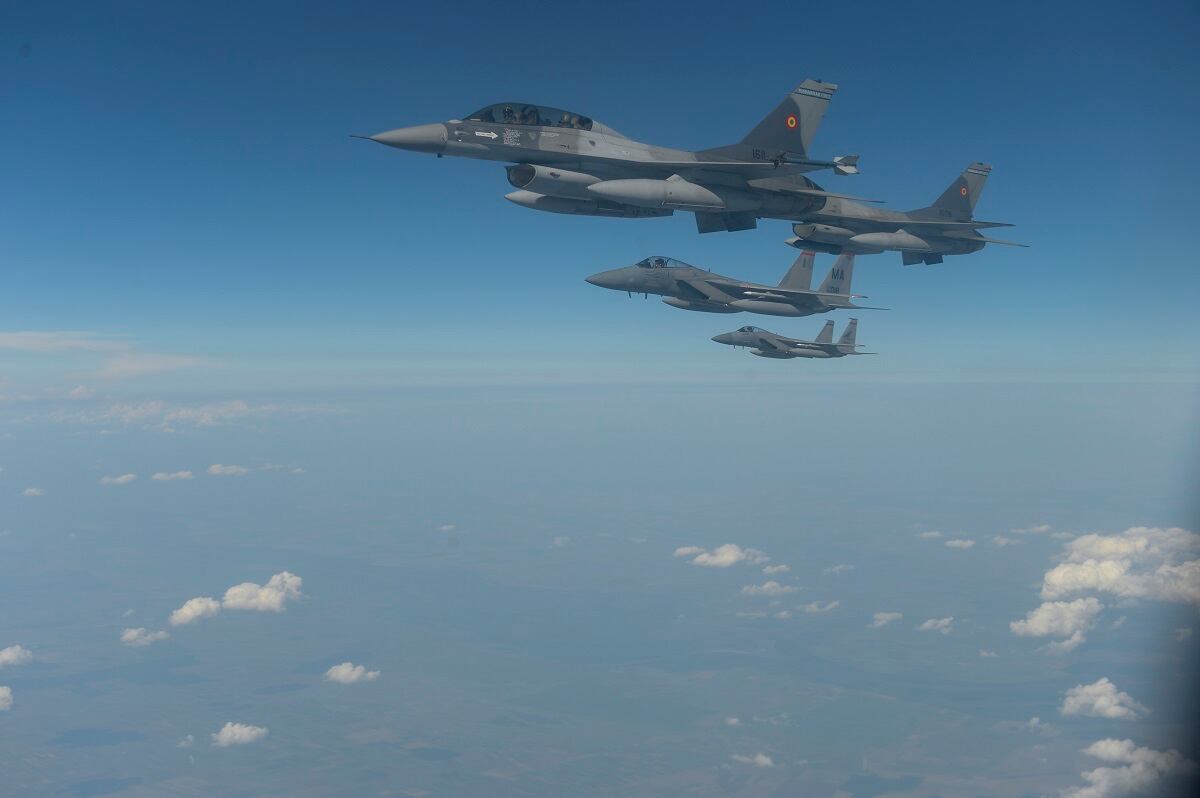The Air Force wrapped up Thracian Star 21 — an exercise designed to enhance interoperability and combat effectiveness — on Friday.
The exercise, spearheaded by the Bulgarian air force and held at Graf Ignatievo Air Base in Bulgaria, involved more than 150 personnel and eight F-16 Fighting Falcons assigned to the famed 555th Fighter Squadron —known as the “Triple Nickel” — based out of Aviano Air Base in Italy.
The exercise consisted of “offensive and defensive counter-air missions, protection of high value assets, and close air support in a contested environment,” the service said. Additionally, the U.S. Air Force F-16s launched a total of 27 inert training munitions, 180 rockets and approximately 7,000 rounds of 20 MM ammunition.
“It’s a mix of air-to-air, air-to-ground, and long range intercept training,” U.S. Air Force Lt. Col. John Ryan, 555th Fighter Squadron commander, said in an Air Force news release. “During this exercise, the 555th FS had the opportunity to employ a variety of munitions at the ranges in Bulgaria.”
RELATED

Although the Bulgarian air force typically doesn’t work alongside Joint Terminal Attack Controllers, this exercise provided them the opportunity to do so.
“We flew close air support with the Bulgarian SU-25s and that was the first time they’ve used U.S. Joint Terminal Attack Controllers on the range,” U.S. Air Force Capt. Justin Goar, 555th FS F-16 pilot and project officer of Thracian Star 21, said in the release. “Normally they don’t use JTACs, but as a NATO country they could potentially find themselves working with JTACs and integrating with other NATO air-to-ground assets in the future.”
U.S. airmen from the 435th Construction and Training Squadron and 4th Combat Training Squadron based out of Ramstein Air Base in Germany were also involved in the exercise. And in addition to the Bulgarian air force, the 555th Fighter Squadron also worked alongside the Romanian and Hellenic air forces as well.
“Exercises like Thracian Star are critical to the role we play at Aviano as a trusted NATO ally,” U.S. Air Force Capt. Reid Chlasta, 31st Aircraft Maintenance Squadron officer in charge, said in the release. “Integrating with our Bulgarian counterparts gives us new perspectives and shows us where and how we can multiply our strengths, especially in functions that directly impact our sortie generation capabilities.”
Bulgaria is slated to receive eight F-16s in either 2024 or 2025. As a result, the Bulgarian air force has crafted an F-16 training program tailored for pilots and maintainers.




